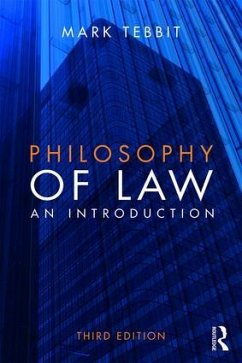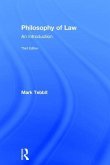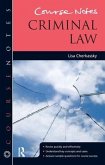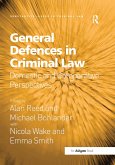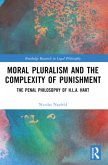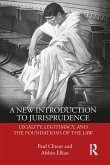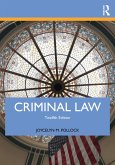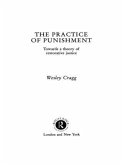Philosophy of Law: An Introduction provides an ideal starting point for students of philosophy and law. Setting it clearly against the historical background, Mark Tebbit quickly leads readers into the heart of the philosophical questions that dominate philosophy of law today. He provides an exceptionally wide-ranging overview of the contending theories that have sought to resolve these problems. He does so without assuming prior knowledge either of philosophy or law on the part of the reader.
The book is structured in three parts around the key issues and themes in philosophy of law:
What is the law? - the major legal theories addressing the question of what we mean by law, including natural law, legal positivism and legal realism.
The reach of the law - the various legal theories on the nature and extent of the law's authority, with regard to obligation and civil disobedience, rights, liberty and privacy.
Criminal law - responsibility and mens rea, intention, recklessness and murder, legal defences, insanity and philosophies of punishment.
This new third edition has been thoroughly updated to include assessments of important developments in philosophy and law in the early years of the twenty-first century. Revisions include a more detailed analysis of natural law, new chapters on common law and the development of positivism, a reassessment of the Austin-Hart dispute in the light of recent criticism of Hart, a new chapter on the natural law-positivist controversy over Nazi law and legality, and new chapters on criminal law, extending the analysis of the dispute over the viability of the defences of necessity and duress.
The book is structured in three parts around the key issues and themes in philosophy of law:
What is the law? - the major legal theories addressing the question of what we mean by law, including natural law, legal positivism and legal realism.
The reach of the law - the various legal theories on the nature and extent of the law's authority, with regard to obligation and civil disobedience, rights, liberty and privacy.
Criminal law - responsibility and mens rea, intention, recklessness and murder, legal defences, insanity and philosophies of punishment.
This new third edition has been thoroughly updated to include assessments of important developments in philosophy and law in the early years of the twenty-first century. Revisions include a more detailed analysis of natural law, new chapters on common law and the development of positivism, a reassessment of the Austin-Hart dispute in the light of recent criticism of Hart, a new chapter on the natural law-positivist controversy over Nazi law and legality, and new chapters on criminal law, extending the analysis of the dispute over the viability of the defences of necessity and duress.
"With its uniquely detailed focus on the Common Law, this is the best textbook available for philosophy students not already familiar with law as it is practiced in the UK, US, and related systems. It will likewise be particularly valuable to law students interested in philosophising about the actual concrete legal systems which surround our lives, rather than "the law" as some abstract and contextless ideal object." Shane Glackin, University of Exeter, UK

